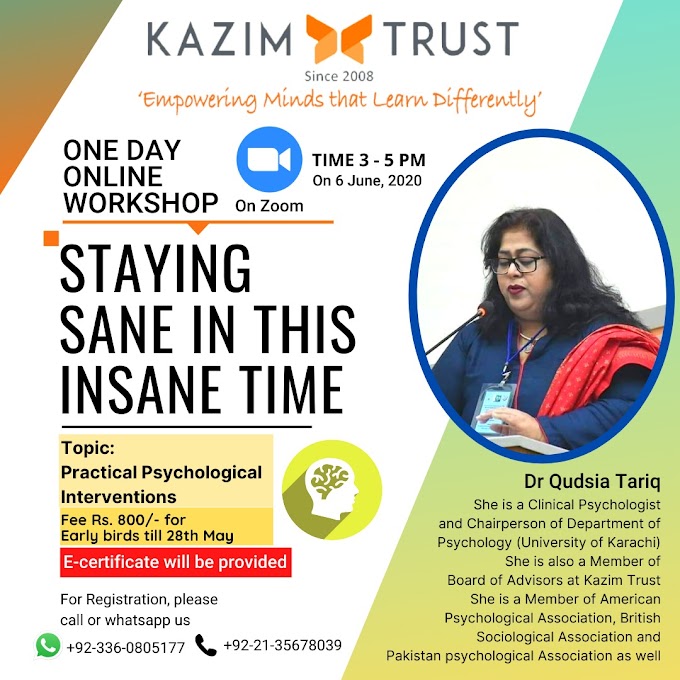Psychologically, this is a neurodevelopmental disorder. It shows an ongoing pattern of inattention and hyperactivity that hampers the development and functioning of an individual at a particular time.
Unfortunately, this was not very common and easily identified decades ago. But now some organizations and schools hire trained and certified people who deal with and along with their Comorbidities. And address the need to help them managing behavior and thrive in their capacity. Kazim Trust has a motto of empowering minds that learn differently, therefore, they work towards helping such children through various awareness programs and holding workshops for teachers and parents who can benefit children who suffer from Attention deficit hyperactivity disorder (ADHD).
Attention-deficit/hyperactivity disorder in children is generally identifiable nowadays, with the application of modern teaching methodology. But it’s a parents’ job too to figure out if their child is suffering from this disorder. They should look for symptoms like:
• Having a short span of attention
• being easily distracted
• making glaring errors, especially in schoolwork
• being unable to focus or stick to a task which they find too challenging
• forgetfulness/losing things
Switching from one task to the other without finishing the first one Kazim Trust takes this very seriously and addresses this as their priority to focus on the behavior of these children. Attention-deficit/hyperactivity disorder in children cannot be considered a big hindrance for them in achieving their goals. They need to be facilitated in the best possible manner.
Attention deficit hyperactivity disorder (ADHD) is found in adults as well. The symptoms of ADHD in adults are a little difficult to define as there has not been a lot of research in this area. But one thing can be said for sure that this disorder is not developed in adulthood, it has had some signs in childhood. Then it persists from childhood to teenage and then adulthood.
Some experts and specialists define the symptoms may differ from children to adults. Inattentiveness, hyperactivity, and impulsiveness may affect differently in adults. If one compares the symptoms of ADHD in adults with that of children, symptoms in adults are far more subtle. The following can be suggested symptoms of ADHD in adults:
• Switching from one task to the other without finishing the first one
• Poor organizational skills
• Carelessness and lack of attention to detail
• Uttering out responses
• Often interrupting others
• Irritability, quick temper and mood swings
• Restlessness
• Inability to deal stress
In some cases, in children, medication works but in others, behavioral intervention is more effective. It’s the doctor’s job to decide, with your consent, if medication is a good option for your child or not.
Other ADHD treatments are social skills training, behavior therapy, etc., which are all practiced at Kazim Trust. We believe in the well-being of both, children and adults. We aim to lead them to their goals.




0 Comments